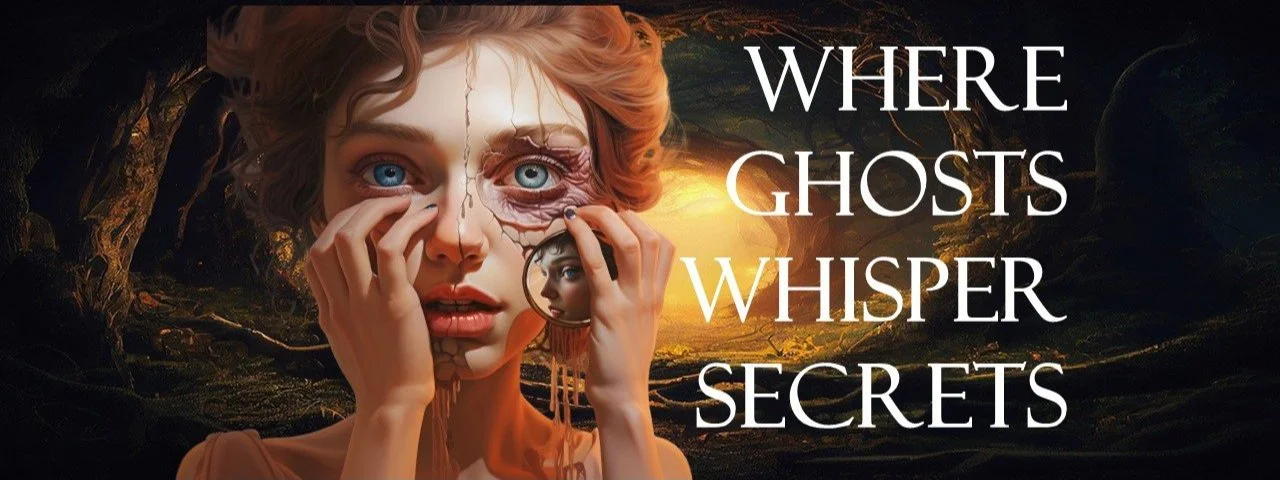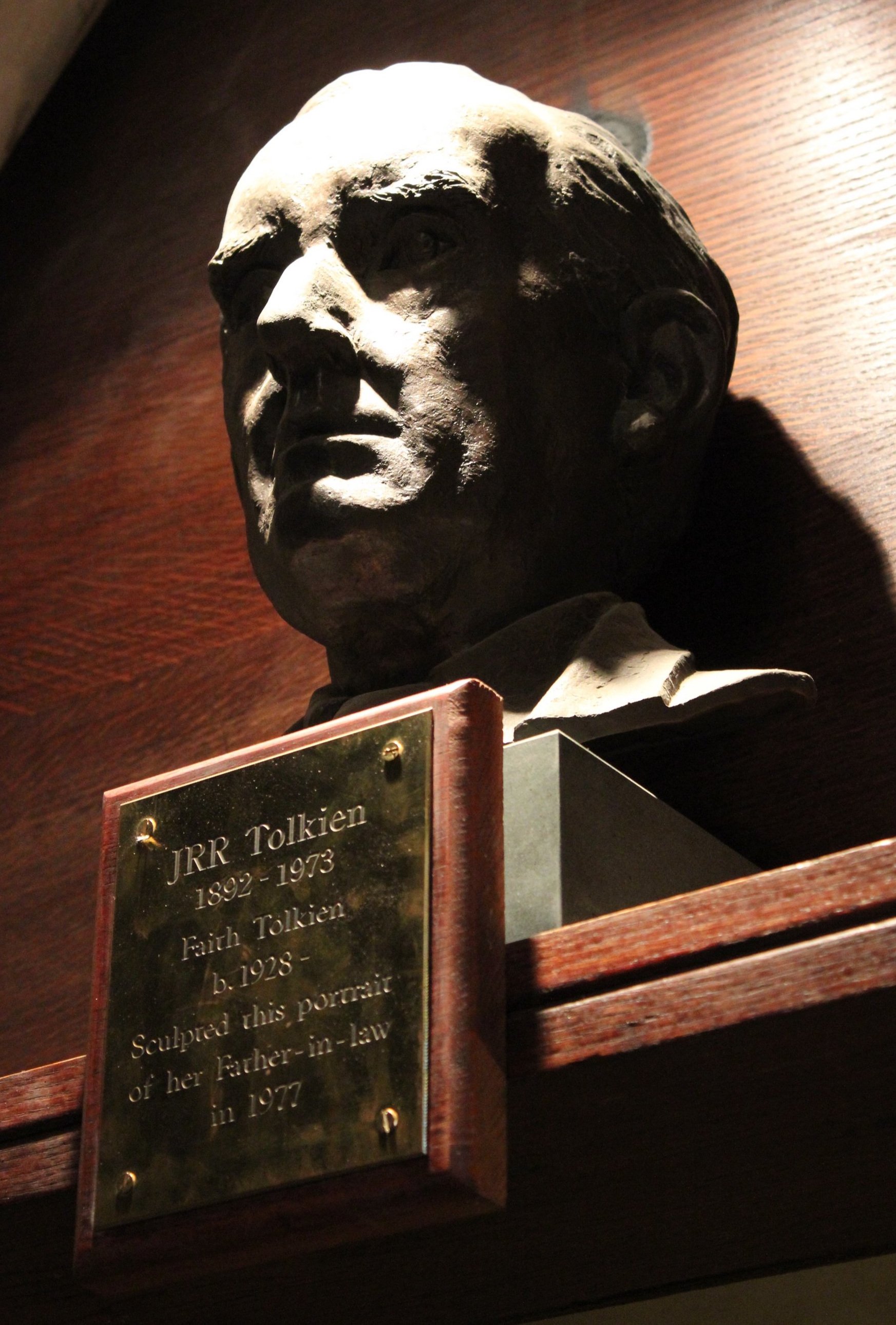My Thoughts on J.R.R. Tolkien
/As someone who has published an epic fantasy, readers often ask me for my thoughts on J.R.R. Tolkien.
Tolkien is one of the most iconic writers in modern literature. His works are widely read, translated, and analyzed in academia. Tolkien's legacies are not only in the mystical world he has created but also in his academic critics. As a famous author of the Lord of the Rings trilogy, Tolkien is best known for his books in medieval studies. His work has been influential to many scholars in the field, and he is often regarded as one of the most important writers in this genre. Tolkien's style is never dry or mundane as he does a fantastic job at weaving a story around his reader.
He uses language that makes you feel like you're reading something from another time period. The way he writes about history and mythology is very interesting because it gives us insight into how people lived during different times.
A Bit of Tolkien History
Tolkien was born on September 27th 1892 in Bloemfontein, South Africa. In 1915, when World War I broke out, Tolkien joined up with the British Army, where he served until 1919. He attended Magdalen College School. Tolkien became a professor. In 1937, he was appointed Professor of Anglo-Saxon at Oxford University, where he taught English literature. During World War II, he served on the staff of the British Ministry of Information. After the war ended, he returned to teaching at Oxford. Throughout, he wrote stories for his children, which prompted him to write his first book “The Hobbit” which came out in 1937 and became an instant success. It's a story about Bilbo Baggins, who goes on adventures through Middle Earth while trying to find the treasure called the Ring of Power. The second part of his trilogy titled “Lord of the Rings”, published between 1954-1955, tells the tale of Frodo Baggins as he tries to destroy the ring that Sauron has given him. He also wrote many other books, including “Farmer Giles Of Ham”. Tolkien died in 1973 at age 81 after suffering from Parkinson’s disease for several years. His son Christopher took over writing duties until completing “The Lord of the Rings” series using his father's notes and letters. Christopher recently passed.
The Meaning of Lord of the Rings
There has always been a controversy as to the meaning of “The Lord of the Rings”. Some people believe it is about Jesus Christ, while others think it is about Satan or Lucifer. The meaning of The Lord of the Rings was revealed by JRR Tolkien himself when he wrote an essay called “On Fairy Stories" which appeared in 1954. In this work, Tolkien explained that the story of Frodo Baggins (the main character) was based on his own life. Tolkien said: “I have tried to make my hobbits real men with human failings, but they are not meant for us to understand their motives too closely… They were made to be good companions, loyal friends, brave warriors, wise rulers, kind fathers, and true lovers”.
But are there hidden meanings in Tolkien's work? Yes! There are many things we can learn from it. For example, Tolkien has a very strong opinion against racism. He once stated that if you read The Hobbit and The Lord of the Rings carefully enough, you will find out that all races are equal. In fact, in his “On Fairy Stories” where he says that fairy stories should teach children about equality among different people. This is why I think that this book is so important because it teaches kids how to treat others equally without judging them by race or gender. It also shows us what happens when someone tries to be better than another person. And finally, it tells us that even though some people may seem like they have more power over other people, power is neutral because everyone has their own strengths and weaknesses.
Through his writing, Tolkien gave us many lessons.
How is The Harrow Saga Different?
The Harrow Saga is a different kind of epic fantasy. The main characters in the story are not elves or wizards. They are two young girls, sisters, who enter a magical world, on an adventure. But the adventure quickly turns into something much bigger than either girl could ever imagine. In The Harrow Saga, the main theme is how we all can change our lives, how we can grow, for the better, by learning from others.
Another difference is that there are many non-human characters who are flawed, badly flawed. Some have strengths, but those strengths seem small compared to the weaknesses. This makes them more human-like. We learn about their past mistakes and failures as well as successes. It's like watching someone grow up before your eyes. You see what they did wrong, and you hope to avoid making those same mistakes yourself.
And, of course, there are evil characters. They're not just evil; they're very, very evil. And sometimes it takes a lot of effort on the part of the reader to figure out why these characters do things. Why would anyone be so cruel? What could possibly make them want to hurt other people? These questions can only be answered by reading further into the story. There are enough clues that can be pieced together.
You see, the nature of evil is such that it doesn't always have an obvious reason for doing something. Sometimes it's because those of an evil nature don't know any better. Other times, though, it's because they enjoy hurting others. The more we read about their actions, the clearer it becomes as to what motivates them, why they act in a certain way. It may not seem like much at first glance, but if you keep digging deeper and pay attention, there will eventually come a point where everything is understood. And that understanding is this: anyone can turn to their evil nature, even if they have been good all their life. That person could be your best friend or your worst enemy; he might look just like you, or he might appear completely different from you. The key here is to understand how people are motivated by their own desires. If someone has an interest in harming another human being, then that desire must exist somewhere within him. In other words, his motivation for doing so comes from inside himself.
Epic fantasy novels always have a common theme - the journey of self-discovery and growth through adversity. This is what makes them great stories. They give us characters who we identify with because we know ourselves better than any fictional character ever will. We see our flaws reflected on the page as well as our strengths. It's not just about good vs evil, but also about finding your place in this world.
As with any story, it's about how you interpret things in relation to your life.






